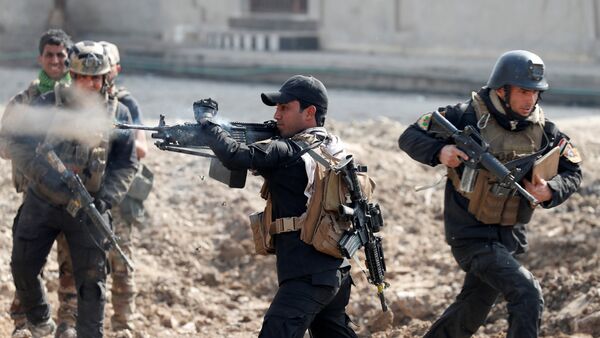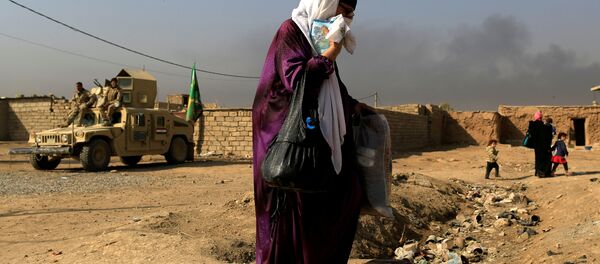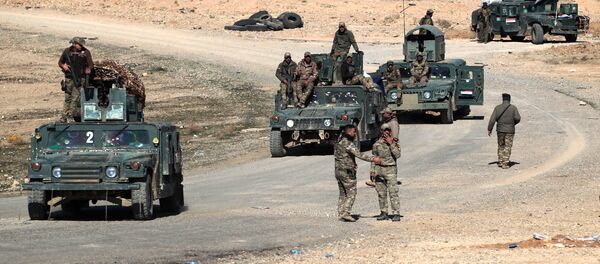The source further said that the latest chemical attack was allegedly carried out using the newest technical devices. For the first time ever, the chemicals were placed inside a rocket. Judging by the nature of the damage, the terrorists clearly used a very dangerous substance.
Earlier, a source from Iraq’s internal security force told Sputnik that Daesh used toxic gas in order to prevent the advance of the Iraqi army into the western part of Mosul.
Previously, bombs with toxic substances were dumped via unmanned aerial vehicles, or were put inside cars that the terrorists blew up as soon as soldiers approached.
One such attack resulted in the death of four servicemen.
According to the World Health Organization [WHO] at least 12 people, including women and children, are being treated after getting attacked by the chemical weapons in Mosul. The representative of the UN humanitarian mission in Iraq, Liz Grande, called for an investigation into the possible use of chemical weapons in the Iraqi city.
The head of the information center of the People's Mobilization Forces of Iraq, Zu al-Fakkar al Baladawi, told Sputnik that the topic of chemical weapons is a large part of the ongoing information war.
“The first time Daesh used chemical weapons such as chlorine and other toxic substances were in the south of Salah ad Din Governorate. Back then the UN and the international community did not pay any attention to the investigations by the Iraqi side, the reports of some media outlets and the stories of the victims about their experience and the nature of injuries they had received,” Baladawi told Sputnik.
He further said that today, as the US-led coalition takes part in the liberation of Mosul, the topic of chemical weapons is actively being discussed at an international level.
According to him the People's Mobilization Forces discovered over 100 tons of ammonia, which together with chlorine is used to produce explosives.
“Now that the Americans have taken the position of countering terrorism, they have begun to raise this issue,” Baladawi said.
He added that the chemicals used for making the bombs are not manufactured in Iraq, but are imported from abroad under special informal agreements.
“The United States provides assistance with supplying the terrorists with these chemicals. Parallel to that, they warn local residents about the dangers of the chemical attacks and thereby, raise their authority in the fight against the militants,” Baladawi concluded.
On March 1, patients with symptoms of exposure to an agent, which causes blisters, were treated at the hospital in Erbil, the capital of the autonomous region of Kurdistan in northern Iraq, according to a WHO statement.




